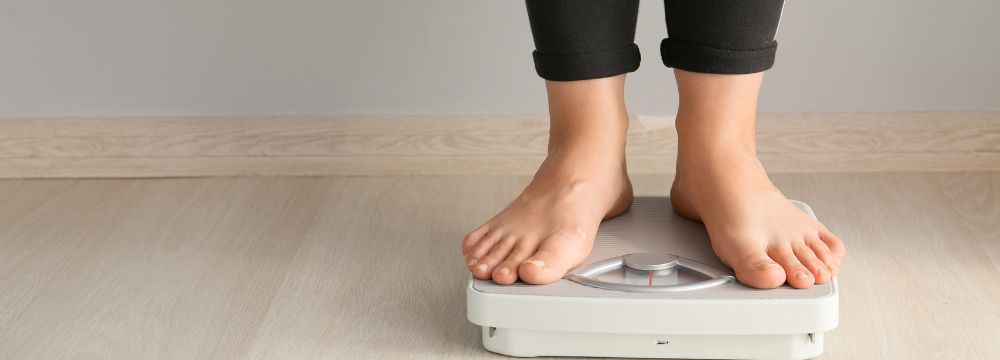
We see hundreds of patients yearly who go on to have very successful metabolic surgery with one of our bariatric surgeons. Each operation is unique in that every patient is different; their care plan must be tailored to their motivations and ultimate goals. To that end, no consultation is ever the same, even if some of the questions are. To help you prepare for your first consultation, we have listed five questions every patient should ask their surgeon. Remember, the answers to these questions will vary between patients, so if your spouse, friend, or family member has had bariatric surgery, the answer may differ slightly from yours. The answers below are generic but offer a great starting point for a deeper discussion.
How Much Weight Will I Lose?
This is a loaded question we certainly can’t answer beyond the averages published in the literature and what we see in our office. Speaking of the most popular bariatric procedures available today, patients can lose between 50 and 80% of their excess body weight with the gastric sleeve on the lower end and the duodenal switch/SADI on the higher end. The gastric bypass falls between them; however, these are only averages, and patients are the biggest influence on their final weight loss number. The more willing and able you are to work at lifestyle change after surgery, the more likely you are to hit your weight loss goals. Many of our patients have lost all their excess body weight after their bariatric procedure.
Is Bariatric Surgery Safe?
Bariatric surgery is a very safe way to fight obesity and its related diseases. The major complication rate of bariatric surgery is low, right around that of laparoscopic gallbladder surgery. The field of surgery has improved technology and techniques over the years to ensure the very best outcomes. Bariatric surgery is not without risk, but the primary concern comes from the patient’s health. Obesity in and of itself creates a significant surgical risk because of the metabolic diseases many patients experience. However, we mitigate these risks as much as possible with a comprehensive preoperative testing program. We also prescribe a preoperative diet to all our patients to help them shrink their liver and reduce the risks of surgery.
Beyond the absolute risks of surgery, we must consider the relative risks of living with untreated obesity. Patients with type 2 diabetes, high cholesterol, high blood pressure, Afib, sleep apnea, and other significant metabolic and cardiovascular risks increase their risk of negative outcomes dramatically. As such, each of our patients will have a frank discussion with their bariatric surgeon about whether the risks of living with obesity are more significant than those of surgery – this is usually the case. It may be helpful to hear more from our patient, John, who recently spoke to Dr. Ringold about his health status before bariatric surgery.
Will I Ever Be Able to Eat or Drink What I Want After Surgery?
This question always makes a bariatric surgeon cringe just a bit. However, we understand why you asked it and have a pretty good answer. Ultimately, we fully understand no patient can have a perfect postoperative diet. You will fall off the wagon occasionally by eating a little too much at Thanksgiving or Christmas or drinking a little too much at a party. This is entirely expected, and we do not want you to beat yourself up over these misses.
What we don’t want you to do, however, is take advantage of the fact you will have some flexibility in your eating, especially several months to several years after your surgery. The gastric sleeve, gastric bypass, and duodenal switch all have inherent self-limiting features that will help you eat less, but you can always cheat. As such, while there are very few off-limits foods and drinks (mostly those with lots of added sugar), we want you to dedicate yourself to improving your lifestyle through better diet and exercise. If you are not ready to improve these habits, we encourage you to consider your suitability for bariatric surgery. Remember, your success is also ours, and we want to see you eliminate those obesity-related diseases and lifestyle impediments quickly and effectively.
Will I Have Relationship Issues After Bariatric Surgery?
Relationships will change after bariatric surgery. It’s almost a certainty. This is because you are changing both physically and psychologically. In most cases, these changes are decidedly positive. For example, data have shown single bariatric surgery patients are more than twice as likely to get married after they’ve had bariatric surgery. However, there is also a “downside” – that bariatric surgery patients previously married have double the divorce rates of their non-bariatric counterparts. But is this a result of surgery? Bariatric surgery will not change your relationships. The confidence you gain from the results of your surgery will.
Will I Regain the Weight?
Weight regain is a difficult discussion to have with our patients and something that can strike fear into even the most dedicated postop warriors. While this discussion could go on forever, we can summarize it by saying almost every patient will regain some a year or two after their surgery, even if they have maintained their goal weight for a while. In time, we will naturally liberalize our diet and exercise regimen, and the stomach’s anatomy accommodates these changes. The weight regain is usually minor, often no more than five or 10% of previously lost weight.
For some, however, this weight regain can be significant and should be addressed early on. If you find that you are regaining weight in an uncontrolled or yo-yo manner and are having trouble maintaining your weight loss, don’t hesitate to contact our office. One of our nurses or surgeons can guide you in the right direction. It’s important to remember weight gain is not a failure but a hurdle we can overcome.
For most, significant weight gain can be nipped in the bud early on and does not require further surgery. For some, however, especially those who don’t address their weight regain early on, surgical intervention in the form of revisional bariatric surgery may be necessary. Fortunately, with proper adherence to aftercare protocols, this is very rare.
Next Steps
If you are considering bariatric surgery, we encourage you to watch our online seminar and learn more about surgical procedures for weight loss and metabolic disorders. From there, we will be happy to schedule you for a consultation with one of our bariatric surgeons, at which point you can ask the questions above and any other questions that may be on your mind.





